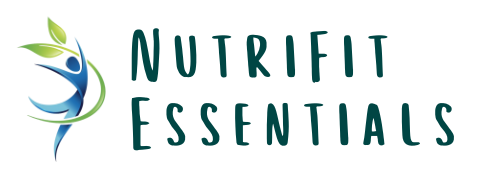Introduction to Postpartum Nutrition Diet
Welcome to your comprehensive guide on postpartum nutrition! Whether you’re a new mom or a seasoned parent, understanding the right nutritional approach after giving birth is crucial for your recovery and well-being. In this article, we’ll explore everything you need to know about optimizing your diet during the postpartum period, including some top product recommendations to make your journey easier. Are you ready to nourish your body and boost your energy?
Why Is Postpartum Nutrition Important?
After the incredible journey of pregnancy and childbirth, your body needs to heal and restore. Adequate postpartum nutrition isn’t just about losing the baby weight—it’s about replenishing depleted nutrients and ensuring you have the energy to care for your newborn. Think of it as the fuel that powers the new-mom engine—how well are you fueling yours?
The Basics of a Postpartum Diet
When we talk about a postpartum diet, it’s not about strict eating regimens or cutting calories. It’s about filling your plate with nutrient-dense foods that help heal and energize. What does a balanced postpartum plate look like for you?
Key Nutrients for Postpartum Recovery
Your post-baby body needs a variety of nutrients to recover:
- Iron: Replenish after blood loss during delivery with a supplement like “Floradix Iron & Herbs“.
- Calcium: Support bone health as your body adjusts post-pregnancy with “Nature Made Calcium“.
- Vitamin C: Essential for tissue repair and immune function, consider “Vitamin C-1000 by Nature’s Bounty“.
- Fiber: Helps manage postpartum digestion issues, try “Metamucil Fiber“.
- Protein: Crucial for muscle repair and overall strength, incorporate “Optimum Nutrition Gold Standard Whey“.
Are you getting enough of these in your daily meals?
Foods to Include in Your Postpartum Diet
Here’s a list of superfoods that are not only delicious but are powerhouses of nutrition:
- Salmon: Rich in omega-3s and protein, try incorporating “Wild Planet Wild Sockeye Salmon“.
- Leafy Greens: Loaded with iron, calcium, and vitamins, easy to add with “Organic Girl Super Greens“.
- Whole Grains: Great source of energizing B-vitamins and fiber, choose “Quaker Old Fashioned Oats“.
- Legumes: High in protein and fiber, perfect for vegetarians, use “Goya Black Beans“.
- Dairy or Fortified Alternatives: Excellent source of calcium, consider “Almond Breeze Original Almond Milk“.
Why not try adding these to your next grocery list?
Foods to Avoid or Limit Post-Pregnancy
While focusing on what to include, let’s not forget about foods that might not serve your postpartum body as well:
- Highly Processed Foods: Often low in nutrients and high in sugars.
- Excessive Caffeine: Can interfere with your sleep schedule, limit intake to less than “Starbucks Single Serve K-Cup Coffee“.
- Alcohol: Best to avoid if breastfeeding, as it can pass through to the baby.
Have you noticed any foods that don’t feel right since you’ve had your baby?
Hydration: The Unsung Hero of Postpartum Health
Did you know that staying hydrated can help with tissue repair and milk production? Aim for at least 8-10 glasses of water a day, or keep hydrated on the go with “Brita Stainless Steel Water Filter Bottle“. What’s your favorite hydrating drink?
Meal Planning Tips for New Moms
Planning meals might seem daunting with a newborn. Here are a few tips to make it simpler:
- Batch Cook: Prepare and freeze meals in advance with “Pyrex Glass Food Storage Containers“.
- Simple Recipes: Choose recipes with minimal ingredients and steps.
- Ask for Help: Don’t shy away from letting friends or family contribute a meal.
What’s your go-to meal prep strategy?
Supplements: Do You Need Them?
While it’s best to get nutrients from food, sometimes supplements are necessary, especially for nutrients like vitamin D or omega-3s. Always consult with a healthcare provider before starting any new supplements like “Nordic Naturals Prenatal DHA“. Have you discussed postpartum supplements with your doctor?
The Importance of Self-care and Nutrition
Remember, taking care of your nutritional needs is a form of self-care. It’s not selfish; it’s necessary for both you and your baby. What self-care practices have you found helpful?
Common Myths About Postpartum Diets
Let’s clear up some myths:
Myth: You must eat for two if breastfeeding.
Reality: You only need about an extra 300-500 calories.
Myth: A strict diet is necessary post-birth.
Reality: Balance and moderation are key.
What other myths have you heard?
Your Questions Answered: FAQs About Postpartum Nutrition
What are the best snacks for postpartum hunger pangs?
Opt for mixed nuts, yogurt, or a fruit smoothie.
Can I follow a vegan diet during postpartum?
Yes, but ensure you’re getting enough protein and vitamin B12.
How can I manage weight safely while breastfeeding?
Focus on gradual weight loss and nutrient-dense foods.
What if I have dietary restrictions due to allergies?
Consult a nutritionist to tailor a plan that meets your needs.
How soon after delivery can I start exercising?
Discuss with your doctor, but generally light exercise like walking can be started relatively soon.
Conclusion
Navigating your postpartum nutrition is a vital step towards a healthy recovery and effective parenting. By incorporating nutritious foods, staying hydrated, and using products that support your dietary needs, you can enhance your overall health and well-being during this special time. Remember, every small step you take towards better nutrition is a giant leap for your postpartum recovery. Happy eating and healthy living, new moms!


One Response
What I in actual fact concern myself most about is wellbeing ideas.
By myself, I subscribe to publications dealing with this subject, and I maintain informed about the latest
wellness lab analyses. In what way is this
relevant? Personally I think there is no more
critical focus for my time. Moreover, this blog website seems as if it’s worth the time to read.
I dig through tons or more of websites weekly. Honestly, my rear usually hurts
and I need a different spare time interest. lol Anyways, I think if absolutely everyone wrote about their place in existence, and did it
cogently, we’d have a much more robust Internet.